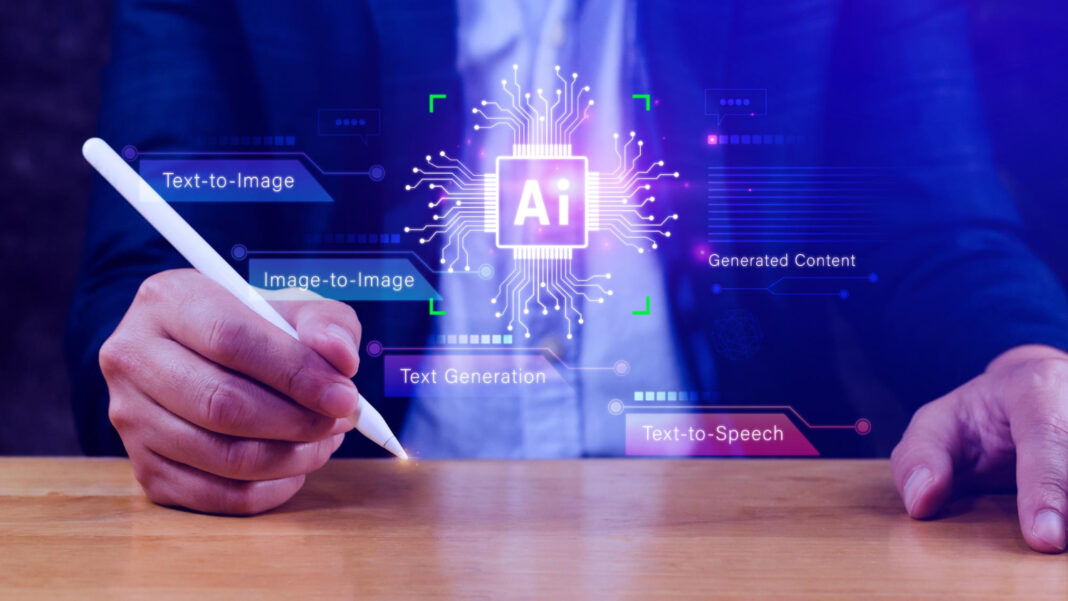As the digital world changes rapidly, content is more important than ever, yet how it is created is going through big changes. Once seen purely in movies and books, Artificial Intelligence (AI) is now being used in practice to help many industries and content writers. AI is now making a big impact on how content is produced for both productivity and individual preferences. If businesses and writers are to keep up in this new age, they have to be aware of how AI affects content writing.
Table of Contents
The Rise of AI in Content Creation
AI’s role in content writing began with basic grammar checkers and predictive text, but it has since advanced to sophisticated tools that can draft entire articles, blogs, emails, and even books. AI-driven platforms like ChatGPT, Jasper, Copy.ai, and others are capable of producing coherent, contextually appropriate, and SEO-optimized content in seconds. To read, evaluate, and synthesize human-like writing, these technologies make use of Natural Language Processing and Machine Learning.
The attractiveness of AI technologies stems from their capacity to save time and decrease human error. Content marketers, bloggers, copywriters, businesses, and even Training Institutes in Chennai are increasingly adopting AI to scale up their content production while maintaining quality and consistency.
Benefits of AI in Content Writing
1. Enhanced Productivity and Speed
One of the most notable benefits AI delivers to content authoring is the dramatic gain in pace. Writers can generate first drafts, outlines, or even complete articles in a fraction of the time it would take manually. This allows content teams to produce more output in less time, meeting tight deadlines and increasing overall efficiency.
2. Cost Efficiency
Hiring a full-time team of writers can be costly, especially for startups and small businesses. AI tools can help reduce costs by assisting with content generation, allowing businesses to allocate resources more effectively. While AI cannot fully replace human writers, it can take care of repetitive or data-driven writing tasks, freeing up human writers for more creative work.
3. SEO Optimization
For those looking to master these AI-powered SEO techniques, a Digital Marketing Course in Chennai offers hands-on training and expert guidance. These courses often include real-time projects and tools to help you implement AI strategies in content marketing campaigns effectively.
4. Personalization at Scale
AI can analyze user data and tailor content to specific audience segments. This level of personalization helps marketers deliver targeted messages that resonate with readers, increasing engagement and conversion rates. Whether it’s creating personalized email content or adapting blog topics based on user behavior, AI enhances user experience like never before.
5. Language and Grammar Enhancement
Tools like Grammarly and ProWritingAid are powered by AI and help writers refine their content with real-time suggestions on grammar, punctuation, tone, and clarity. These tools serve as virtual editors, enabling even novice writers to write engaging blog posts that are polished, professional, and tailored to their audience.
Challenges and Limitations of AI in Content Writing
While AI offers numerous advantages, it’s not without limitations. Relying solely on AI-generated content can pose risks such as:
1. Lack of Originality and Creativity
AI technologies use existing data to develop content. As a result, they may struggle with truly original thinking or creative storytelling. Content that requires emotional depth, humor, or nuanced perspectives still benefits significantly from a human touch.
2. Contextual Errors
Despite their advances, AI systems can sometimes misinterpret context or generate factually incorrect information. Without human oversight, this can lead to misleading or inaccurate content, which can damage a brand’s credibility.
3. Ethical Concerns and Plagiarism
As AI tools often pull from vast datasets, concerns around plagiarism and ethical content creation arise. Content writers must ensure that AI-generated work is unique and properly reviewed before publication.
4. Over-Reliance on Technology
Excessive reliance on AI may result in a deterioration in critical thinking and writing abilities among content authors. It’s critical to achieve a balance in which AI acts as a help rather than a replacement.
The Future of Content Writing with AI
The future of AI in content writing is not about replacing human writers but rather enhancing their capabilities. Hybrid models, where AI collaborates with human creativity, will likely become the norm. Writers will increasingly use AI as a tool for brainstorming, research, editing, and optimizing, while the core creative and strategic aspects will remain human-driven.
We can also expect AI tools to become more refined, capable of understanding tone, cultural context, and audience sentiment better. As AI continues to evolve, content writers will need to continuously upskill, learning to harness the power of AI while maintaining their unique voice and originality.
Upskilling opportunities like a Content Writing Training in Chennai can help aspiring writers and marketers build a strong foundation in both traditional and AI-powered techniques.
Artificial Intelligence is undeniably transforming the content writing industry. It’s enabling faster production, better SEO integration, personalized messaging, and reduced costs—benefits that are too significant to ignore. However, AI is not a silver bullet. It is a powerful assistant, not a replacement for human creativity and critical thinking.
For content creators, marketers, and businesses, the key lies in embracing AI thoughtfully. By combining the efficiency of AI with the authenticity and originality of human writing, we can create impactful, engaging, and future-ready content. As we move forward, those who adapt to this blend of technology and creativity will be best positioned to lead in the evolving digital landscape.



